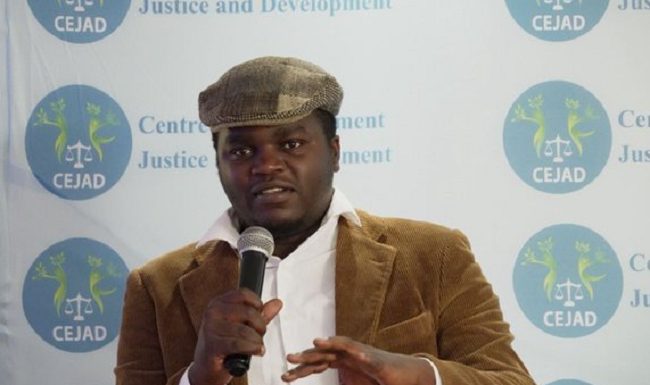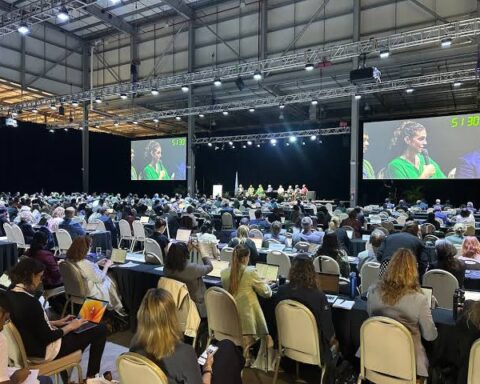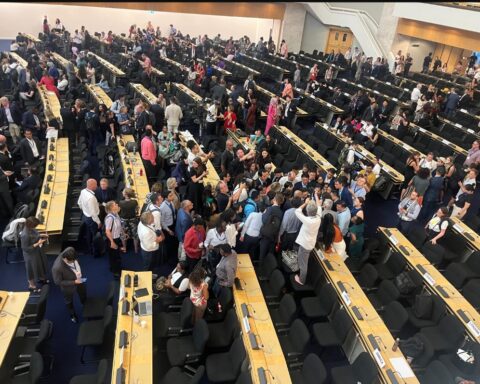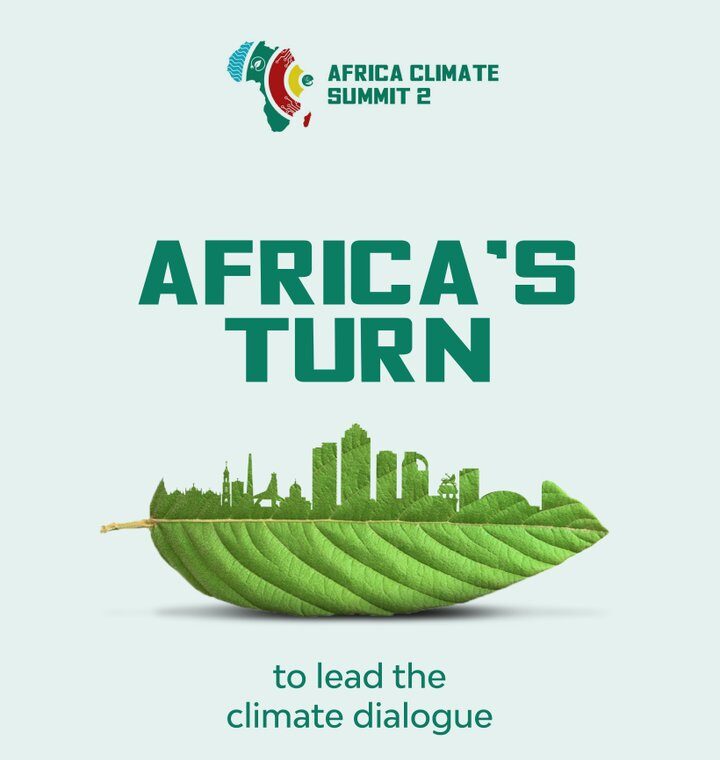As the world prepares for the second session of the fifth Intergovernmental Negotiating Committee (INC-5.2) on plastic pollution in Geneva, Kenya’s waste pickers are calling for formal recognition, inclusion, and protection within the emerging global plastics treaty.
Addressing a press conference in Nairobi on Wednesday, July 31, 2025, Chairman of the Kenya National Waste Pickers Welfare Association, Brian Gisore Nyabuti, issued a passionate appeal to global leaders and treaty negotiators to ensure that the voices of waste pickers are meaningfully represented at the negotiating table.

“I speak with urgency and resolve to demand an ambitious and inclusive global plastics treaty one that centres the dignity, livelihoods, and rights of waste pickers through a just transition,” Gisore stated.
He highlighted the critical role waste pickers play in Kenya’s informal recycling economy, noting that they recover and process up to 60 percent of the country’s plastic waste, significantly reducing pollution and supporting the country’s circular economy goals.
Despite this contribution, Gisore lamented that waste pickers continue to work under precarious and often dangerous conditions—without formal recognition, protective equipment, or fair compensation.
“From the dumpsites of Dandora to the streets of Mombasa, our hands keep plastics out of the environment, yet we remain invisible in policy discussions. This must change,” he said.
Key Demands Ahead of INC-5.2
Gisore urged the INC-5.2 delegates to establish binding commitments to cap global plastic production; eliminate toxic chemicals used in plastic manufacturing, build a global circular economy model centred on reuse and community-led recycling and formally recognise waste pickers as essential stakeholders in plastic waste management systems.
He also called for a just transition that includes the Integration of waste pickers into formal waste management systems;Access to fair wages, healthcare, and social protection; and Funding through Extended Producer Responsibility (EPR) to support training, cooperatives, and micro-insurance.
Rejecting market-driven solutions such as plastic credits, Gisore cautioned that such mechanisms risk further commodifying waste pickers’ labour without addressing the root causes of plastic overproduction and pollution.
“We need a treaty rooted in environmental justice and human dignity, not one shaped by profit motives,” he said.
Meaningful Participation, Not Symbolism
Gisore stressed the importance of inclusive participation in treaty negotiations, urging the UN and national governments to provide transparent pathways for waste pickers to engage in both official plenary sessions and side events.
“Lived experience must guide global policy. We are ready to partner with governments, industries, and civil society to build a world free from plastic pollution but we cannot do it alone. Fund our work. Protect our rights. Include us in your plans,” he declared.
With the INC-5.2 negotiations expected to shape the final contours of the Global Plastics Treaty, waste pickers across Kenya and the Global South are calling for an end to exclusion and invisibility, demanding a seat at the table where decisions about their lives and labour are being made.
By Joseph Silali, Nairobi, Kenya








